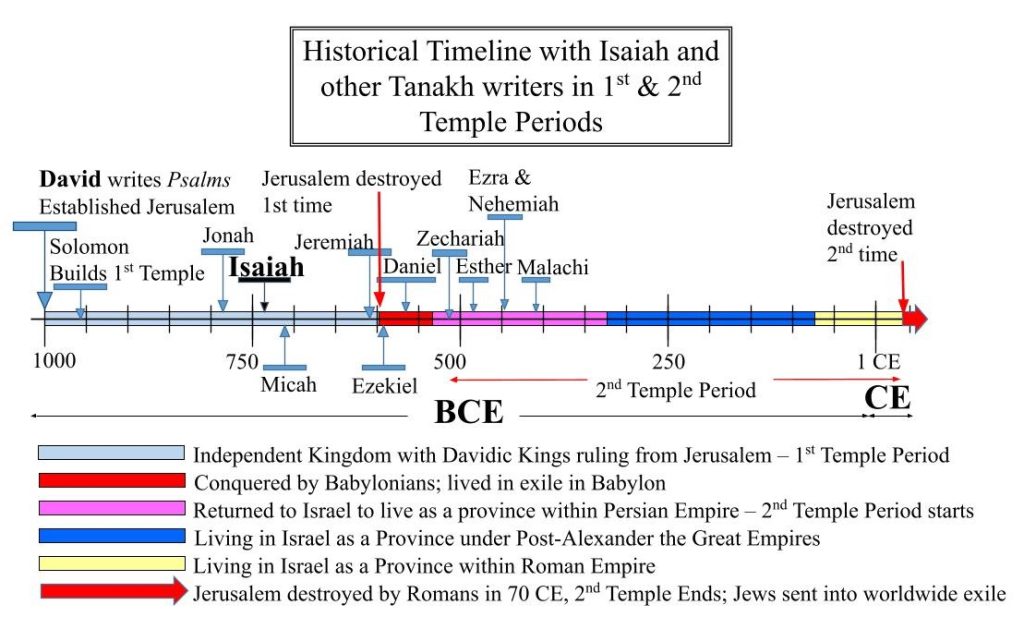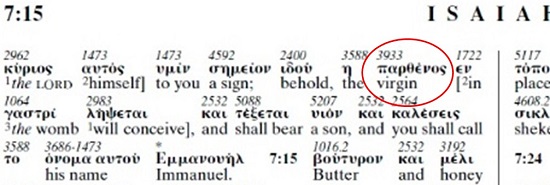We saw the Jewish origins of the Christmas story in the Brit Chadasha, as well as that of ‘Christ’ in Tanakh. But what about the controversial questions about Yeshua’s descent from David and the ’virgin birth’ which the Brit Chadasha asserted so clearly.
We know that the Tanakh, through the pen of Isaiah, with the image of Branch from a stump, had predicted that the Messiah would come from David’s line.
Was Yeshua really from the line of David?
Many perceive the Brit Chadasha’s claim to fulfilled prophecy as biased. Levi wrote what he did because he wanted us to see a fulfillment of this prophecy in Yeshua. But who is to say that he didn’t just make it up to get a ‘fulfillment’? Many of us just leave the question there and either believe or not based on our own biases. But hold the verdict! The case has not been fully heard. Accepted Jewish sources from this period have more evidence to bring out.
Distinguished scholar F.F. Bruce’s work Jesus and Christian Origins outside the New Testament. (1974 215pp) identified and analyzed Jewish Rabbinical references to Yeshua in the Talmud and Mishnah. He noted the following rabbinical comments about Yeshua:
Ulla said: Would you believe that any defence would have been so zealously sought for him (i.e. Jesus)? He was a deceiver and the All-merciful says: ‘You shall not spare him neither shall you conceal him’[Deut 13:9] It was different with Jesus for he was near to the kingship” (Sanhedrin 43a)
Ibid p.56
FF Bruce makes this remark about that rabbinical statement
The portrayal is that they were trying to find a defence for him (an apologetic note against Christians is detected here). Why would they try to defend one with such crimes? Because he was ‘near to the kingship’ i.e. of David.
Ibid p.57
So, hostile Jewish rabbis did not dispute the Gospel writers’ contention that Yeshua really was in the line of David. Though they did not accept his overall claim to ‘Messiah’ and they opposed the Gospel claims about him, they still affirmed that Yeshua descended from David’s royal line. The Brit Chadasha did not simply make that up to get a ‘fulfillment’. Hostile witnesses agree on this point.
Born of a Virgin?
Now there is always a possibility of this royal lineage being true ‘by chance’. But born of a virgin?! There is no possibility of this happening ‘by chance’. It is either: a misunderstanding, a made-up fraud, or a Divine Happening – no other option exists.
Luke and Levi quite clearly state that Mary conceived Yeshua while she was a virgin. And Levi ups the ante by quoting and claiming that this was a clear fulfillment of a prophecy from Isaiah (ca 750 BCE) which said:
Therefore the Lord himself will give you a sign: The virgin will be with child and will give birth to a son, and will call him Immanuel (i.e. ‘God with us’)
Isaiah 7:14 (and quoted in Matthew 1:23 as a fulfillment)

Virgin or Young Woman
Here some plausible natural explanations come to mind. The Hebrew (הָעַלְמָ֗ה transliterated haalmah) which was translated ‘virgin’ above could also mean ‘young maiden’, i.e. a young unmarried woman. Perhaps that is all that Isaiah ever meant to say, way back in 750 BCE. Given some pious ‘need’ by Levi and Luke to venerate Yeshua they misunderstood Isaiah to mean ‘virgin’ when he really meant ‘young woman’. Given the untimely (yet convenient for ‘prophecy’) pregnancy of Mary before her marriage it neatly developed into a ‘divine fulfillment’ centerpiece in Yeshua’s birth story.
Witness of the Septuagint
Many have recounted some such explanation over the years, and on the one hand one can’t refute this explanation – after all proofs about being a virgin or not are difficult if not impossible to frame. But, for a fact, the story is not this simple. The Septuagint (LXX), the Greek translation of the Hebrew Tanakh published by Jewish scholars long before Yeshua was born (more on Septuagint here), provides a window into Jewish understanding of Isaiah 7:14
How did these Jewish rabbis translate Isaiah 7:14 from the Hebrew? Did they translate it as ‘young woman’ or ‘virgin’?

The Septuagint renders it unequivocally and categorically as παρθένος (transliterated parthenos), meaning ‘virgin’. In other words, leading Jewish rabbis around 250 BCE understood Isaiah’s prophecy to mean ‘virgin’, not ‘young woman’ – over two hundred years before Yeshua came on the scene. The Gospel writers or early Christians did not invent this concept. It was Jewish long before Yeshua’s birth.
Jewish Rabbis: Ignorant or in-the-know?
So why did the leading Jewish scholars back then side with such a seemingly ridiculous and far-fetched prediction that a virgin would have a son? If you think it is because they were superstitious and unscientific in that day then think again. People in that era were farmers. They knew all about how breeding worked. Hundreds of years before the Septuagint Abraham and Sarah knew that after menopause kicked in childbearing was impossible. Scholars in 250 BCE did not know about the periodic table of elements or the complete electro-magnetic spectrum, but they knew how animals and people reproduced. They would have known it was naturalistically impossible to have a virgin birth. But they did not retreat, they did not hedge their bets and make it ‘young woman’ in the Septuagint. No, they inked it in black and white that a virgin would have a son.
Mary’s Context
Now consider the fulfillment part of this story. Though it cannot be proven that Mary was a virgin, she was remarkably in the only and very brief stage of life where it could still remain an open question. Yeshua simply having an older sibling would disprove the virgin birth. This was an age of large families. Families with ten children were not uncommon. Given that, what was the chance that Yeshua would be the oldest child? Around a 1 in 10 chance. In other words, a 90% probability existed that the ‘fulfillment’ could have been dismissed by the simple fact of Yeshua having an older sibling. But against the odds he didn’t.
And if Mary had become pregnant before her engagement she would have had to fend for herself – if she had been allowed to live. It is a striking coincidence that this birth happens while betrothed but still unmarried.
It is these remarkable and unlikely set of ‘coincidences’ which make the virgin explanation impossible to disprove that strike me. These coincidences exhibit a sense of balance and timing as if a Mind were arranging events with plan and intent.
Rabbinical witnesses again
If Mary had married or had children before Yeshua’s birth then hostile witnesses would surely have pointed that out. Instead it seems that, once again, they defer to the gospel writers on this point. FF Bruce notes this as he explains how the rabbinical writings refer to Yeshua:
Yeshua is referred to in rabbinical literature as Jesus ben Pantera or Ben Pandira. This might mean ‘the son of the panther’. The most probable explanation is that it is a corruption of parthenos, the Greek word for ‘virgin’ and arose from Christian references to him as a son of a virgin
Ibid p 57-58
As hostile witnesses they did not disprove the virgin claim, they resorted to mocking it, playing on Mary’s status as unmarried but pregnant.
Today, as in Yeshua’s time, there exists hostility to Yeshua and the claims of the gospel. Then, as now, there was animosity to him. But, back then they were also witnesses, and as hostile witnesses they did not refute some basic points that they should have easily been able to, had these points been made up or been in error.
Maybe there is something to the Brit Chadasha’s claim that Yeshua was a Virgin’s son from David’s line.